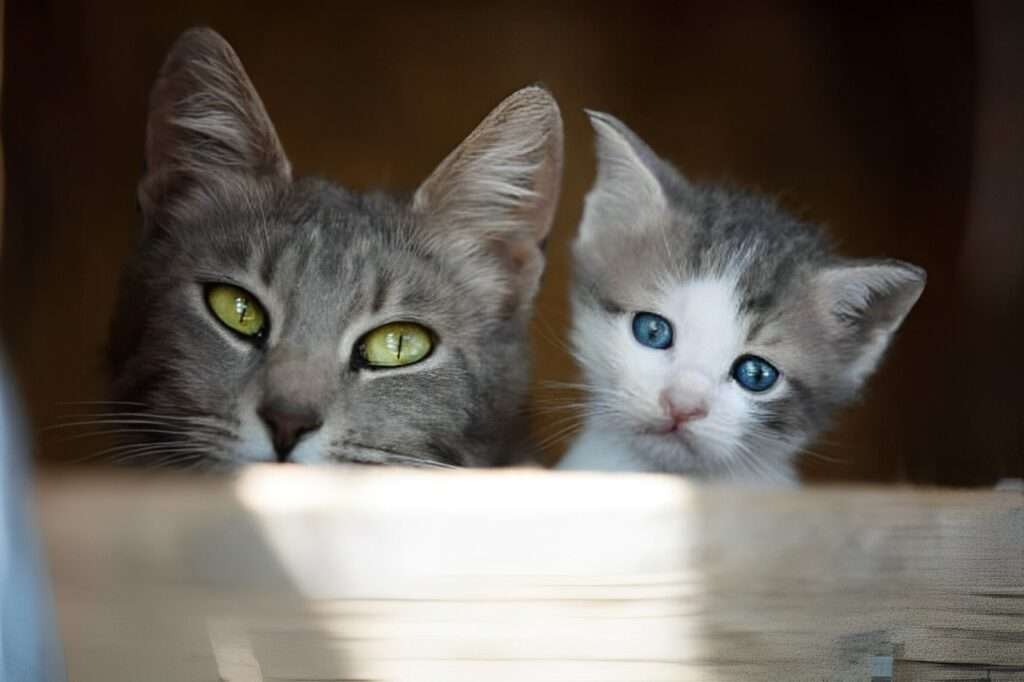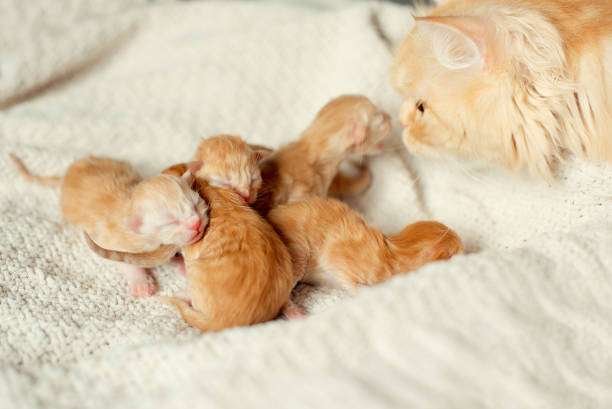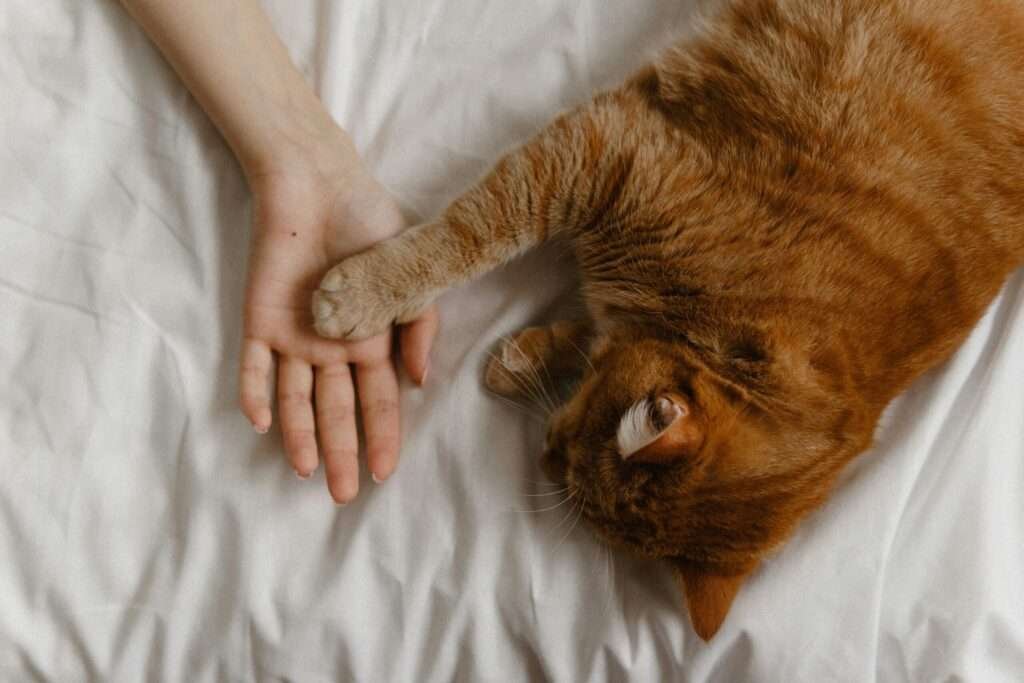Seeing a mother cat with her kittens is a very heartwarming sight for me. But when my cat gave birth to four kittens, it became difficult for me to handle five cats together. So I had to give the kittens to my friends, who could take good care of them. My cat was very affectionate toward her kittens and loved them a lot. But what happens when those kittens grow up a little and are adopted into new homes? Did my cat miss her babies after they were gone? In this article, I will answer this question based on my personal experience with mother cats and how they cope with the separation from their kittens.
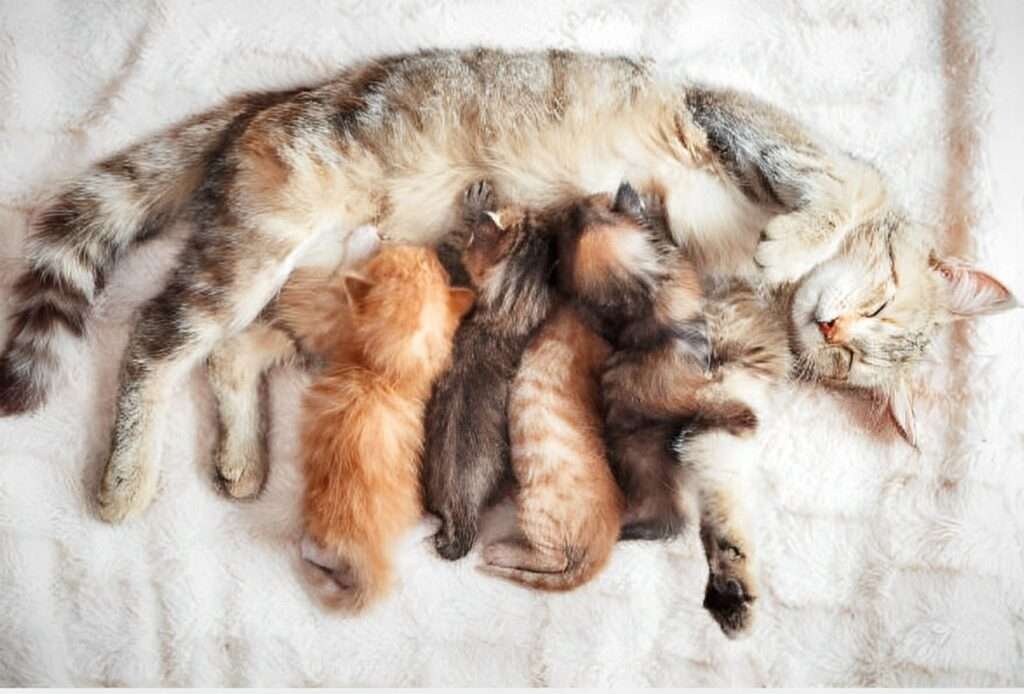
Table of Contents
ToggleDo Mama Cats Miss Their Kittens?
I know that seeing your cat with her kittens can be incredibly touching. Mama cats are incredible at nurturing their young, helping these tiny, dependent babies grow into strong, independent cats. However, what happens when the kittens grow up and find homes? Do mama cats miss them?
The answer is nuanced. Yes, mama cats do feel love and emotional connection with their kittens, but this connection is not same as the human emotion bonds. The scientific explanation is, The process of nursing increases oxytocin, you can also call this “love hormone.” As this hormone is created in the mama cat, the feeling of happiness, social bonding, trust, and relaxation, which are essential for the survival and development of the kittens, increases. However, as the kittens grow older and begin weaning, the production of oxytocin decreases. Gradually, the mama cat starts to create a separation between her babies and lets them live their own lives.
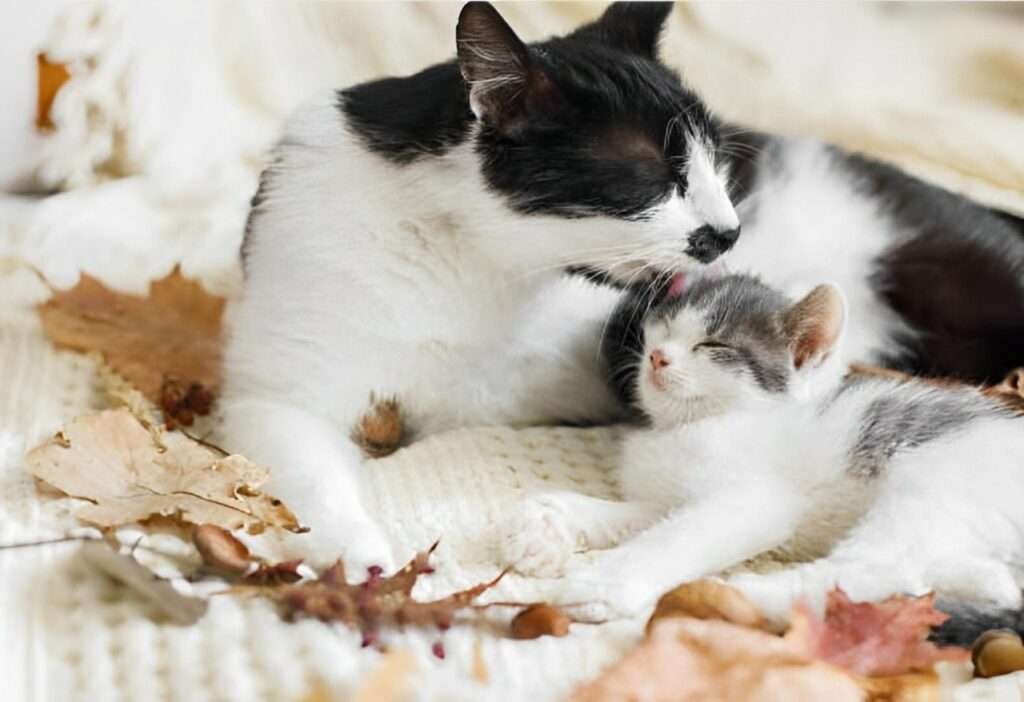
The Evolutionary Perspective
Cats have evolved with a different approach to motherhood compared to humans. Unlike humans, who invest a lot of time and resources into raising a few babies, cats have larger litters and shorter gestation periods. A mother cat’s role is more about quickly preparing her kittens for independence. This means that while mama cats do experience bonding, it is less intense and long-lasting than in humans. They are adapted to move on quickly once their kittens are independent.
Individual Differences
It’s important to note that every cat is unique. I’ve witnessed young mothers who neglect their kittens due to a lack of knowledge or support, and others who grieve deeply for a lost kitten. Similarly, experienced mothers vary in how they handle separation. Some might seem to move on quickly, while others may show signs of missing their kittens, especially if the separation was abrupt or the kittens were taken away too early.
For instance, Gizzy, a tortie cat, demonstrated a strong maternal instinct even after being adopted. When she heard a kitten crying on TV, she frantically searched for the source of the sound, displaying a poignant mix of maternal instinct and confusion.
What Happens When Kittens Are Adopted?
When kittens are adopted, the mother cat may initially show signs of looking for them. If the kittens were weaned and eating solid food, the separation is less likely to cause prolonged distress for the mother. Mama cats might cry and search for their babies temporarily, but with time, they generally adjust to the absence.
For example, a mother cat might act as if she’s getting over the separation, showing affection and returning to her usual routine. The emotional connection that a mother cat feels towards her kittens will generally diminish within a few days, especially if the separation occurred at the appropriate time when the kittens were becoming more independent.
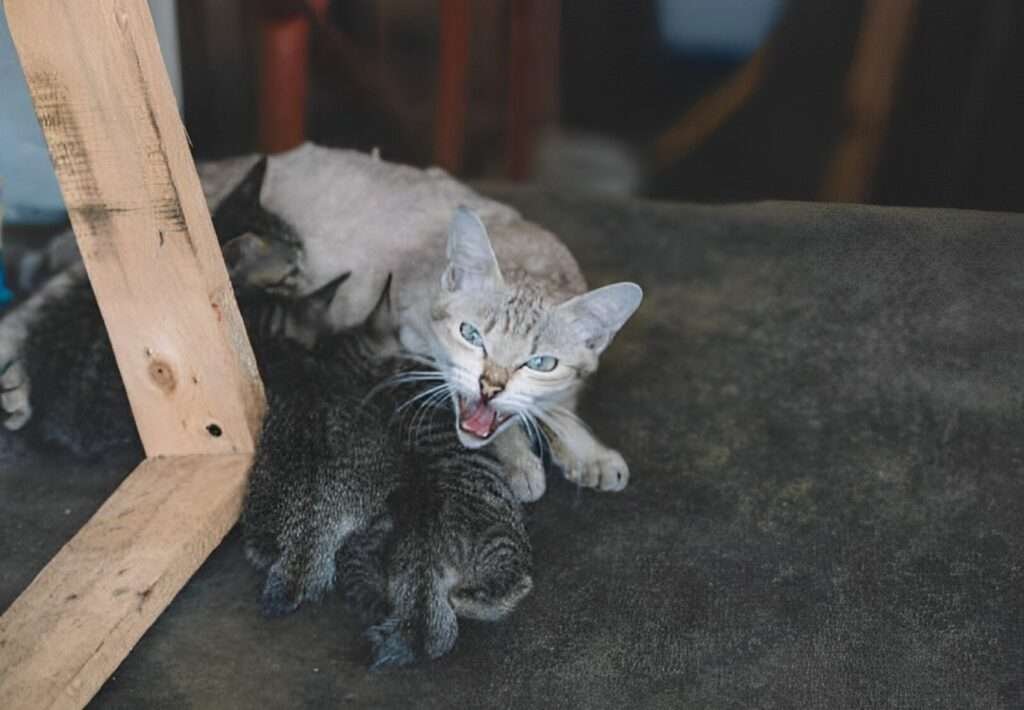
Maternal Instincts and Bonding
Maternal instincts in cats are powerful but also highly adaptive. When kittens are taken away, the mother cat’s initial response might be one of confusion or temporary distress, but this is a natural part of the transition. As the kittens grow older and begin to wean, the mother cat’s focus shifts from intense caregiving to preparing for the next phase of her life.
It’s also important to understand that cats don’t view their parents in the same way humans do. For cats, scent plays a significant role in recognition and comfort. Once the scent is broken due to separation, the connection to the past may be weakened. This means that if cats are reunited after a long separation, they might not recognize each other in the same way humans would recognize a long-lost family member.
Why Do Cats Bring Their Kittens to Humans?
Sometimes, a mother cat might bring her kittens to a human caretaker. There are several reasons for this behavior:
- Safety: Cats may bring their kittens to you because they perceive your home as a safe environment. The presence of humans can offer protection from predators and other threats.
- Help: A mother cat might need a break and trusts you to help out. In the wild, cats sometimes share parenting responsibilities, and bringing kittens to you might be a way of seeking additional support.
- Family Reunion: Your home might be seen as part of the cat’s family territory. Bringing kittens to you could be a way for the mother cat to introduce her family to you.
- Show Off: Another reason could be that the mother cat wants to show off her kittens. This behavior can be a sign of trust and affection, as well as a display of pride in her maternal instincts.
- Hygiene: If the mother cat believes her nesting area is unhygienic, she might move her kittens to a cleaner location, which could include bringing them to you.
What to Do After Adoption
If you’ve adopted kittens and are concerned about the mother cat, providing her with extra care and attention can help her adjust. You can buy special wet food and treats, give her a comfy bed, and engage her in play. If needed, a visit to the vet can ensure she’s healthy and doesn’t have any issues such as milk build-up.
Final Words
In summary, while mama cats do have strong emotional bonds with their kittens, these bonds are different from human attachments. Once the kittens are weaned and adopted, the mother cat’s feelings of missing them are generally brief. Understanding these dynamics can help in providing the right care for both the mother cat and her kittens during and after the adoption process.
Every cat is unique, and their responses to separation can vary, but with proper care and understanding, both the mother and her kittens can thrive in their new circumstances.
FAQ: Do Mama Cats Miss Their Kittens?
1. Do mama cats miss their kittens after they are adopted?
Yes, but the feeling is usually brief.
2. Why do mama cats bond with their kittens?
They bond through nursing and caring for them, which releases love hormones.
3. How long does it take for a mama cat to adjust after kittens are adopted?
It usually takes a short time, often less than 72 hours.
4. What happens if kittens are taken away too early?
The mama cat may feel more confused and distressed.
5. Do all mama cats react the same way to their kittens being adopted?
No, each cat can react differently based on their personality and experience.
6. How can I help a mama cat adjust after her kittens are adopted?
Provide her with comfort, attention, and playtime to help her settle in.
7. Can a mama cat get pregnant again soon after her kittens are adopted?
Yes, mama cats can become pregnant again quickly after their kittens are weaned.
8. Should I be worried if my mama cat seems aggressive after her kittens are adopted?
It’s often normal behavior, but consult a vet if you have concerns.
9. How does the natural environment affect a mama cat’s reaction to her kittens being adopted?
In the wild, mother cats move on naturally, so domestic cats may also adapt quickly.
10. Is it important to give special care to a mama cat after her kittens are adopted?
Yes, extra care and attention can help her adjust more comfortably.

